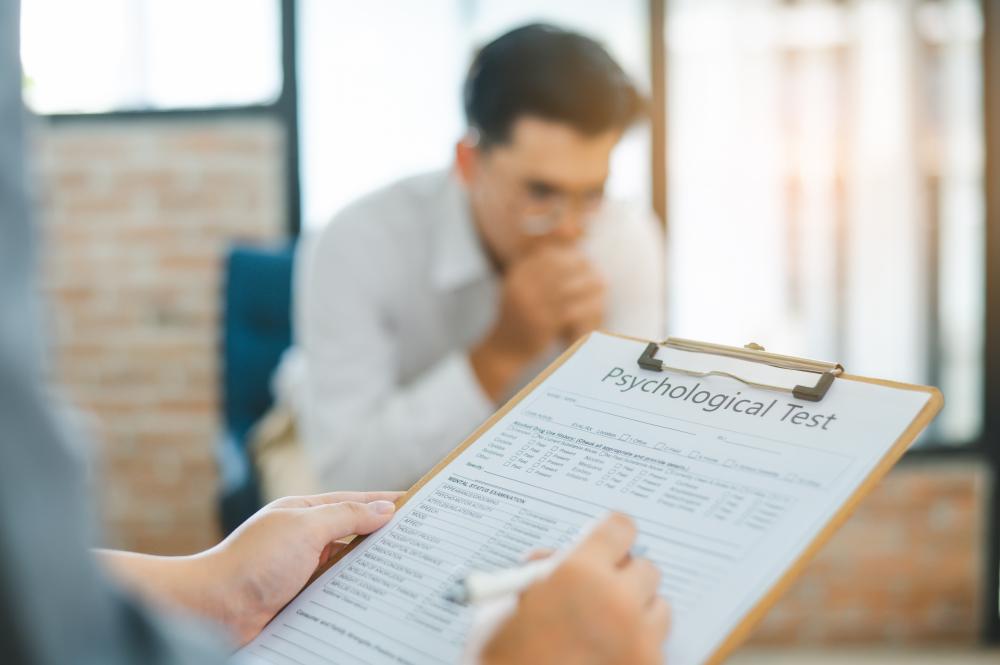
Unique Challenges Facing Mental Health Disorders in Austin TX
The vibrant city of Austin faces significant mental health challenges. With its rapid growth, the demand for mental health services has increased, yet access to care remains limited. The exact keyword phrase “mental health disorders Austin TX” highlights these pressing issues.
One significant barrier is the shortage of mental health professionals. Many residents find it difficult to access timely care, often facing long waiting lists. Economic disparities further exacerbate the situation, leaving underserved communities without adequate support.
Integrating Substance Use and Mental Health Treatment
At ATX Recovery, we recognize that many individuals battling mental health disorders in Austin TX also face co-occurring substance use issues. Our comprehensive treatment model addresses both simultaneously, providing a more holistic approach to recovery.
By integrating therapies such as Cognitive Behavioral Therapy (CBT) and Dialectical Behavioral Therapy (DBT), we enable our clients to tackle underlying issues causing both mental health struggles and substance use.
Our professional staff includes certified recovery coaches and nutritionists who work together to create an individualized plan. This collaborative effort ensures a comprehensive treatment experience, addressing both physical and emotional well-being.
Expanding Treatment Accessibility Across Austin
In response to the growing demand for mental health services, ATX Recovery has expanded its reach beyond central Austin. We’ve established centers in Bee Cave, Cedar Park, and Round Rock, making it easier for individuals to receive help close to home.
Our accessibility ensures no one is left behind in their pursuit of recovery. By offering a range of services such as detox and partial hospitalization, we provide multiple entry points tailored to individual needs.
Transitional living and alumni programs further support ongoing recovery, helping clients build a foundational network that extends beyond initial treatment.
Evidence-Based Therapies for Effective Recovery
At ATX Recovery, our commitment to utilizing evidence-based therapies for treating mental health disorders in Austin TX ensures the best possible outcomes for our clients. Techniques like Eye Movement Desensitization and Reprocessing (EMDR) have proven especially beneficial for clients dealing with trauma-related disorders.
Alongside EMDR, our approach includes experiential therapy, which allows individuals to engage in activities that promote healing through creative expression. These therapies complement traditional methods, creating a dynamic and enriching recovery journey.
Importance of Family Support in Recovery
Understanding the vital role family plays in the recovery process, ATX Recovery offers extensive resources to families of those dealing with mental health disorders in Austin TX. Our educational groups and support sessions empower families to become active participants in their loved one’s wellness journey.
By fostering open communication and understanding, families can help create a nurturing environment that supports long-term recovery. This approach not only benefits the individual in treatment but also strengthens family bonds.
Our support programs address common concerns and provide guidance on how families can effectively support their loved ones without compromising their own well-being.
Testimonials Highlight Success at ATX Recovery
Real-life experiences from those who have undergone treatment at ATX Recovery underscore the life-changing impact of our programs. Jordan M. shares, “ATX Recovery changed my life. I came in feeling hopeless and overwhelmed by my addiction, but their compassionate staff and personalized approach gave me the support I needed to heal.”
Similarly, Sam R.’s testimonial illustrates the effectiveness of our dual-diagnosis approach: “I can’t say enough about how much ATX Recovery has done for me. I was battling both depression and substance abuse, and they helped me navigate both with patience and expertise.”
Taylor L.’s story emphasizes the holistic nature of our services: “The team at ATX Recovery didn’t just treat my addiction; they helped me understand the root of my mental health struggles. Their holistic approach combined with their genuine care made all the difference.”
These testimonials provide powerful evidence of our commitment to transformative care in Austin TX.
Comprehensive Services at ATX Recovery
ATX Recovery offers a wide array of services to address the diverse needs of those dealing with mental health disorders Austin TX. From detoxification to intensive outpatient care, each program is carefully designed to meet individuals where they are in their recovery journey.
Our intervention assistance and medication management further support the tailored care we provide. By prioritizing individual needs and considering the unique circumstances of each client, ATX Recovery delivers personalized treatment plans that promote sustainable recovery.
Life skills training and educational groups build confidence and resilience, equipping clients with tools they need for long-term success. This well-rounded approach sets the foundation for enduring change and empowerment.

Who is best to see for mental health issues?
Deciding who to see for mental health issues can feel like navigating a sea of options, but understanding the professionals available can simplify the process. For initial concerns, seeing a primary care doctor can be a good start. They can provide assessments and referrals to specialized mental health professionals such as psychologists or psychiatrists. Psychologists are well-suited for therapy and behavioral interventions, while psychiatrists can prescribe medication if needed.
If you’re in Austin, ATX Recovery offers comprehensive services with both licensed therapists and certified recovery coaches, making it a one-stop solution for mental health and co-occurring substance use disorders. This integrative approach ensures that both emotional and physical aspects of mental health are addressed.
Does Texas have good mental health services?
Texas has made strides in recent years to improve mental health services, with numerous initiatives aimed at expanding access and reducing stigma. However, challenges remain, particularly in rural areas where resources can be scarce. In urban centers like Austin, facilities like ATX Recovery provide cutting-edge treatment with a focus on evidence-based practices. Their commitment to accessibility and comprehensive care reflects positively on the state’s evolving mental health landscape.
If you’re considering seeking help, it’s beneficial to research facilities that align with your needs and values. At ATX Recovery, the emphasis on individualized treatment ensures that each client’s unique circumstances are addressed.
How to get a mental health diagnosis?
Getting a mental health diagnosis is a critical step towards understanding and addressing your mental health needs. Starting with a trusted healthcare professional, such as a family doctor, can help initiate this process. They might conduct preliminary assessments and then refer you to a mental health specialist for further evaluation.
In Austin, ATX Recovery offers comprehensive assessments conducted by experienced professionals. These evaluations consider a wide range of factors, including psychological symptoms, substance use patterns, and lifestyle aspects, to ensure a holistic understanding and accurate diagnosis. It’s an empowering process that lays the foundation for targeted treatment plans.
Who can diagnose mental illness in Texas?
In Texas, mental illnesses can be diagnosed by licensed professionals such as psychiatrists, psychologists, and sometimes licensed clinical social workers or counselors. At ATX Recovery, a team of licensed therapists and medical professionals collaborate to provide thorough diagnostic evaluations.
This multi-disciplinary approach ensures that diagnoses are accurate and cover the complex nature of mental health issues, particularly when substance use disorders are involved. The goal is not only to diagnose but also to tailor a treatment plan that specifically addresses each client’s needs.
What are the common misconceptions about mental health disorders?
A common misconception is that mental health disorders are a sign of personal weakness or failure. This couldn’t be further from the truth. Mental health disorders, like physical disorders, are often rooted in complex interactions between genetic, biological, environmental, and psychological factors.
Another misconception is that these disorders are not treatable. At ATX Recovery, we see firsthand how transformative treatment can be. By combining evidence-based therapies with personalized care, individuals can achieve recovery and lead fulfilling lives. Dispelling these myths starts with education and open conversations.
Why is family support important in mental health recovery?
Family support can play a pivotal role in an individual’s recovery from mental health disorders. A supportive family can provide encouragement, reduce the stigma associated with seeking help, and offer practical assistance throughout the recovery process. At ATX Recovery, we include families in the recovery process through educational and supportive programming.
For example, when families attend support sessions, they learn how to communicate effectively about mental health issues, enhancing the recovery environment. This involvement not only helps the individual in recovery but often transforms family dynamics, creating a more supportive home environment overall.
How can ATX Recovery help someone experiencing mental health and substance use disorders?
ATX Recovery is uniquely equipped to assist individuals struggling with co-occurring mental health and substance use disorders. Through an integrative approach, they provide tailored plans that address both issues simultaneously. Their treatment model includes therapies such as DBT, CBT, and specialized programs for dual diagnoses.
The commitment to evidence-based and holistic care ensures that clients receive comprehensive support, from detoxification to life skills training. With the help of a dedicated team, clients can navigate recovery with confidence, supported by a robust network of resources and community.
If you or a loved one is facing these challenges, engaging with a provider like ATX Recovery could be a transformative step towards healing.
Resources
- National Alliance on Mental Illness (NAMI) – NAMI is the largest grassroots mental health organization in the United States, dedicated to providing support, education, and advocacy for individuals and families affected by mental illness.
- Substance Abuse and Mental Health Services Administration (SAMHSA) – SAMHSA is the leading agency in the U.S. focused on improving the behavioral health of the nation, providing resources, programs, and information on mental health and substance abuse treatment.
- American Psychiatric Association (APA) – The APA is a medical specialty society representing more than 38,000 psychiatric physicians worldwide, advocating for quality mental health care and promoting psychiatric education and research.
- Mental Health America (MHA) – MHA is a community-based nonprofit organization dedicated to addressing the needs of those living with mental illness and promoting overall mental health for all individuals.






